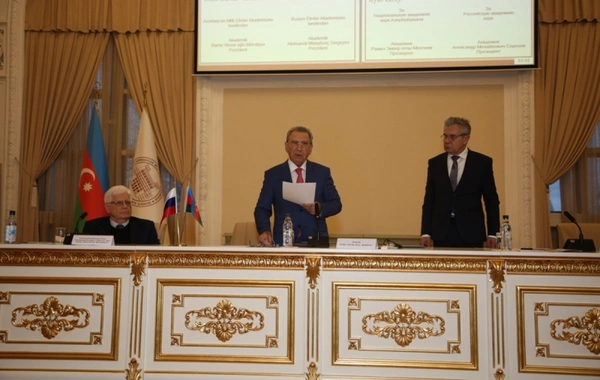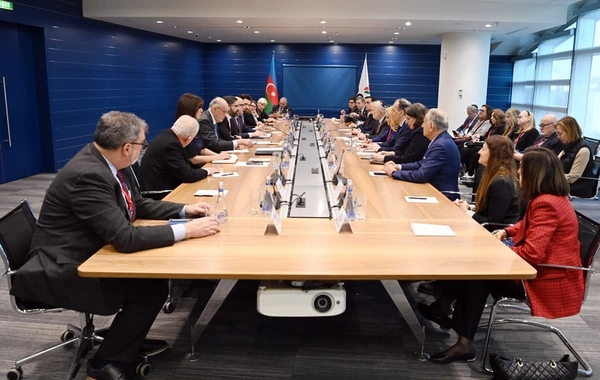Elchin Amirbekov: Peace agreement with Armenia is just the first chapter on the path to normalization of relations

The conclusion of a peace agreement between Azerbaijan and Armenia is an important milestone, but only the first step on the path to ending the long-standing conflict and normalizing relations between the Caucasus neighbors.
As reported by BAKU.WS, this assessment was given in an interview with the Brazilian daily newspaper Folha by the representative of the President of Azerbaijan for special assignments, Ambassador Elchin Amirbekov, who visited Brazil in March for meetings with representatives of the Foreign Ministry and members of Congress.
According to Amirbekov, calling Baku's requirements for signing the treaty new or artificial, including changing Armenia's constitution regarding mentions of Karabakh - a region that was the focal point of conflict between the two countries, is "unfair and not very honest." The term "artificial" in relation to the conditions was used by the Armenian Foreign Minister in a recent interview with Folha.
"Let me first say that I agree that completing negotiations on the text of a peace agreement is a very important milestone. But it's much more than that. I would say it's like a book with two chapters, and you need to read both to say that you've read the whole book," noted the diplomat.
The first chapter, according to him, is closed, as more than two years were spent coordinating the text of the peace agreement, which Azerbaijan drafted and proposed to Armenia. Baku made every effort to demonstrate sufficient political will and flexibility to achieve this result.
But it would be wrong to think that everything is done and the document can simply be signed, Amirbekov emphasized. The second chapter of this book is about resolving two main remaining obstacles:
1. territorial claims to Karabakh contained in the current constitution of Armenia;
2. the need to dissolve the outdated and non-functional OSCE institutions that once mediated this conflict long ago but failed and have done nothing for five years.
"I would say it's unfair and not very honest to call these conditions new or artificial, because we've been pursuing this for more than two years," said the ambassador. "We're saying that this article (on territorial claims against Azerbaijan - ed.) should be removed so that Armenia's constitution aligns with the letter and spirit of the peace agreement. We don't want to give even a hypothetical chance to anyone in the future to return to this conflict."
Amirbekov emphasized that if Armenia is sincere in its desire to conclude a peace agreement, it needs to do everything possible to change this part of its Constitution. Now the ball is in Armenia's court - it must assure Azerbaijan that it has once and for all abandoned its claims to Karabakh.
"We want to know that the Armenian people desire peace, because it's important for us to sign this agreement not only with Prime Minister Nikol Pashinyan's government, but with Armenia as a state and people," said the President's representative. "If the Armenian people are not ready to give up their illegal claims to Karabakh, then what kind of peace are we talking about?"
The ambassador also spoke about the priorities of Azerbaijan's chairmanship at the UN climate conference COP29 and support for Brazil's chairmanship at COP30. He noted that in Baku they managed to triple the climate financing target for developing countries to $300 billion per year by 2035 and even open the possibility for scaling up efforts to $1.3 trillion annually. Amirbekov expressed optimism about achieving this ambitious goal, despite the complexities in negotiations between nearly 200 countries with different priorities and constraints.
Similar News
It has become known who the woman from Russia is, with whom Ramiz Mehtiyev was talking on the phone
The video material distributed today by the State Security Service (SSS) contains a fragment of a telephone conversation between former Head of the Presidential...




 Azərbaycanca
Azərbaycanca  По-русски
По-русски  English
English 






